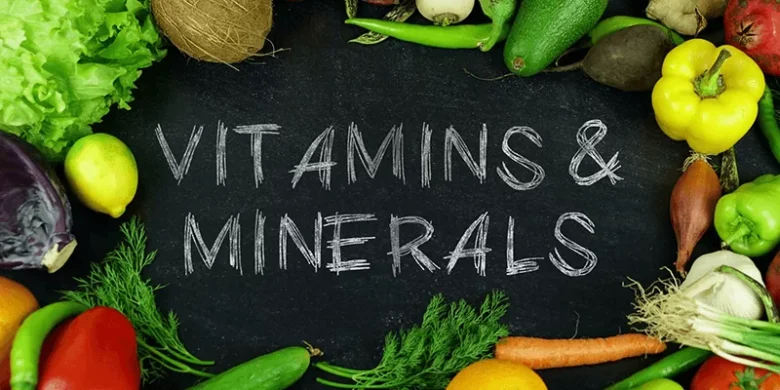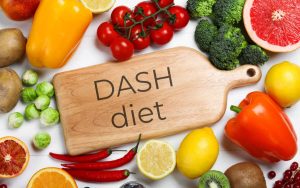Vitamins and minerals are vital elements to maintaining a healthy diet, aiding bones, supporting immunity, and turning food into energy. While vitamins are organic substances derived from plants or consumed directly by animals. Vitamins include A, B6, C, D, E, and K, as well as folic acid. Minerals include calcium, sodium, potassium, iron, and zinc.
1. Vitamins
Vitamins are organic substances that help the body function optimally and remain healthy. A diet rich in vegetables should provide most people with all of their needs; however, others may need additional supplements.
Minerals are inorganic elements found naturally in both soil and water sources, often needing smaller doses than vitamins for optimal functioning of our bodies and bone development. Calcium, phosphorus and magnesium are three such essential minerals essential to bone growth and proper body functions. Other minerals, including iron, folate (vitamin B9), and chromium, are vital in creating blood. While deficiencies of these essential nutrients are uncommon in the United States, too much of one mineral could lead to deficiencies of others.
2. Minerals
Vitamins are organic compounds that aid the body’s growth and functioning. Minerals are inorganic elements found in soil and water that plants absorb through absorption or are consumed directly by animals as food sources. Some minerals, like calcium, require large doses for absorption, while copper, iodine, iron, and zinc are needed in lesser amounts.
A balanced diet typically provides enough vitamins and minerals for most individuals; however, certain groups, such as older adults, vegetarians and vegans, and women during gestation, may be at increased risk for deficiency. Eating foods rich in these essential nutrients, as well as taking any necessary supplements, may help ensure adequate vitamin intake to prevent deficiencies.
3. Fat
Vitamins and minerals play a key role in keeping the human body functioning at its optimal capacity, from supporting healthy bones, skin, nerves, and immune systems to maintaining blood pressure and immunity levels. Fat is essential in order to absorb “fat-soluble” vitamins (A, D, E, and K) as well as B vitamins (thiamin, riboflavin, niacin, pantothenic acid, biotin, B6, and folate). A diet rich in fruits, vegetables, and lean proteins will provide many of these essential nutrients.
Minerals are essential elements that can be found in foods like fish, green vegetables, and whole grains in smaller amounts. Common examples of minerals are calcium, phosphorus, sodium, potassium, iron, and their various trace counterparts, such as chromium, magnesium, and zinc.
4. Carbohydrates
Carbs are our primary energy source, found in foods like whole grains, beans, fruits, and vegetables. Carbs also come in the form of sugars, starches, and fibres—it’s important to consume carbohydrates from various sources while limiting sugars, as these may contribute to high blood pressure, weight gain, and type 2 diabetes.
Reducing simple sugars such as table sugar, syrup (including agave), and processed foods made with refined white flour should be your goal. Instead, choose natural sources of carbs like fruit that have low glycaemic index values like fruit. Your brain relies heavily on glucose for energy purposes, so its levels must remain optimal for proper functioning.
5. Protein
Human bodies cannot produce vitamins and minerals on their own, so we must obtain them through diet. Misinformation surrounding micronutrients abounds; to effectively choose appropriate ones for yourself, a naturopathic doctor, registered dietitian, or integrative medicine doctor can be invaluable in understanding your specific requirements and providing assistance in selecting them.
Vitamin C helps your body create healthy red blood cells, while vitamins A and folic acid reduce birth defect risks such as spina bifida in babies. Protein is essential for cell repair and producing hormones and enzymes. You can find protein in beans and lentils, nuts and seeds (with their butters), fish, poultry meats, and dairy products like milk, cheese, and yoghurt.
6. Water
There are various vitamins and minerals that are water-soluble, meaning they dissolve in water and pass out of your system with urine. Examples of such nutrients are vitamin A (retinol), B vitamins such as thiamin, riboflavin, pantothenic acid, and folic acid, as well as minerals choline, potassium, calcium, and magnesium.
Minerals are found in many animal and plant-based foods that make up a healthy diet, such as meat, milk, whole grains, and vegetables. While certain minerals—calcium and iron, for instance—may be present in larger amounts in meat products like cheese and milk, while others, such as chromium, copper, and zinc, only need to be taken in small doses; most people can get most of what they need from water alone.
7. Omega-3 Fatty Acids
Vitamins and minerals (sometimes referred to as micronutrients) are necessary for growth, development, and normal body functioning, as well as protecting against and fighting diseases (1).
Vitamins come from plants and animals, while minerals are inorganic elements found in the earth. Common vitamins include water-soluble and fat-soluble ones; water-soluble ones are excreted through urine, while fat-soluble vitamins are stored in liver tissue or stored as fat deposits in fat tissues. Minerals are divided into macrominerals (calcium, phosphorous, magnesium potassium sodium, etc.) and trace minerals such as zinc iron copper iodine, etc.
8. Antioxidants
Minerals are essential elements needed by your body for proper functioning, found both on earth and in food sources like meat, dairy products, fruits vegetables grains and nuts. Unlike vitamins, they don’t store themselves within your system and must be used immediately; most people get what they need by adhering to a balanced diet.
Antioxidants are compounds that act to neutralise free radicals that damage cells, including beta-carotene (found in oranges, apricots, and spinach), vitamin C, E, and selenium, as well as lycopene and flavonoids—although excessive dosages of antioxidants may be harmful. They can also be found in food supplements; however, excessive quantities can be harmful.
9. Fiber
Upon examining a food’s nutrition label, your initial reaction might be to focus on sugar or calories; however, if you overlook the fibre content, you could potentially overlook a significant chance for enhanced health.
Fiber can do many things to support overall wellness, including keeping your digestive system operating efficiently and lowering risks associated with heart disease, diabetes, cancer and constipation. Soluble and insoluble fibre both play important roles in diets—each is necessary for overall wellness. Add high-fibre foods like beans and whole grains (a cup of kidney beans has 11 grams of fibre!) to your meals, along with leafy green vegetables and the skins of fruits as a tasty twist.




